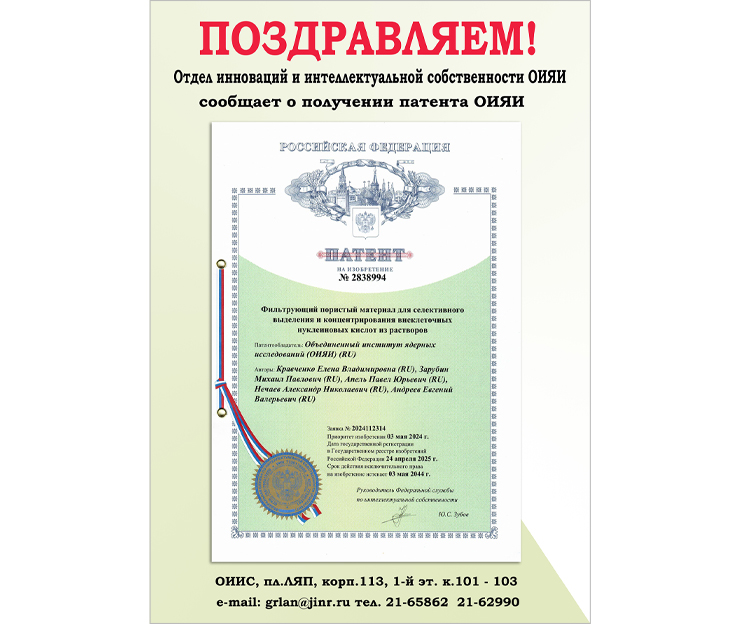JINR scientists developed new filter material
News, 21 May 2025
Employees of the Dzhelepov Laboratory of Nuclear Problems and the Flerov Laboratory of Nuclear Reactions developed a new filter material for the selective extraction and concentration of extracellular nucleic acids from solutions. The patented technology will significantly increase the ease and speed with which biological fluids of various origins can be analysed.
The material is based on polyethylene terephthalate track membranes. Their surface consists of many pores that were covalently modified by the disordered DNA and RNA binding protein, Dsup. Unlike existing methods that use cellulose, glass, or other porous materials, JINR’s development allows filtering large volumes of biological fluids while minimising the risk of contaminating the filter. The invention makes it possible to efficiently and selectively isolate both short and long extracellular nucleic acids from various solutions with no prior sample preparation.
The development has a wide range of potential applications, including medicine, environmental monitoring, biotechnology, pharmaceutics, and forensics. The material is easy to use, demonstrates high efficiency, and requires no special equipment, which makes it a promising tool for analysing extracellular nucleic acids in various fields of science and industry.
The Joint Institute for Nuclear Research obtained the RU 2838994 patent entitled “Porous filter material for the selective isolation and concentration of extracellular nucleic acids from solutions” on 24 April 2025. The authors of the invention are DLNP JINR scientists Elena Kravchenko and Mikhail Zarubin in cooperation with FLNR JINR employees Pavel Apel, Alexander Nechaev, and Evgeny Andreev. More information about the development is available in the article on the JINR website.
Congratulations to the team of scientists on receiving the state registration!
